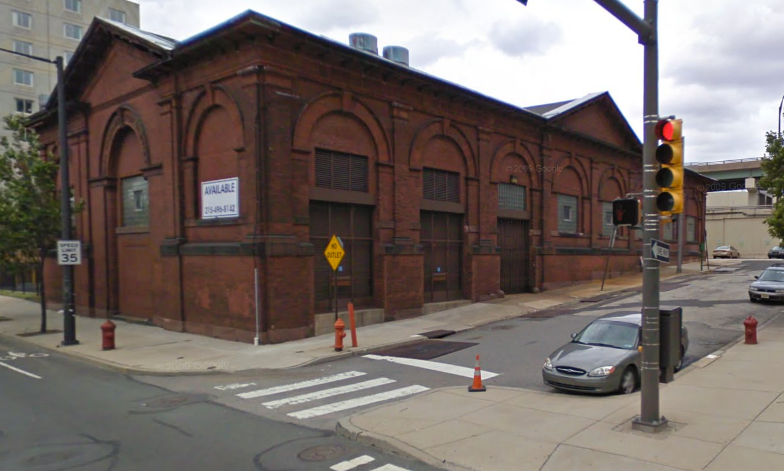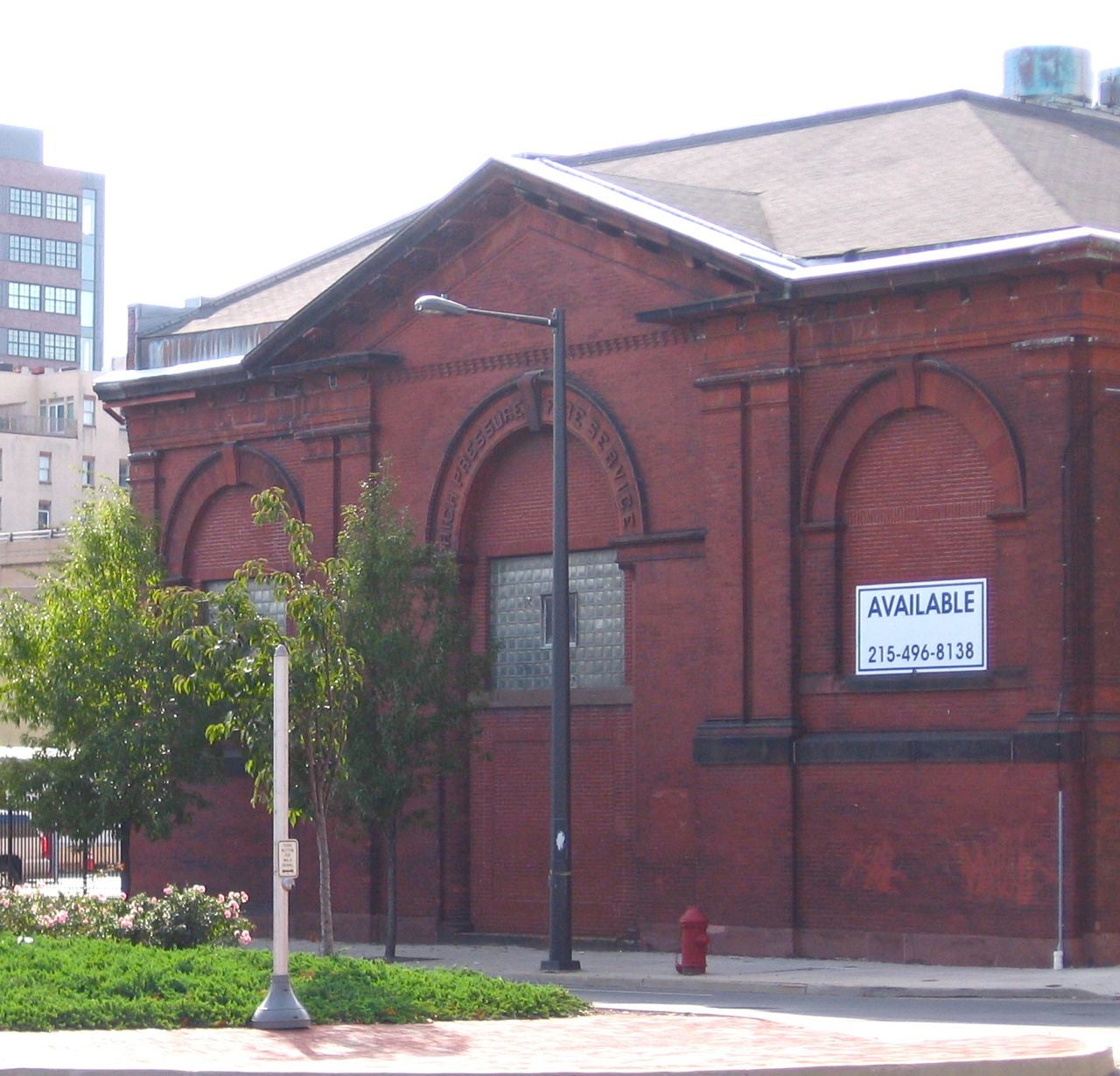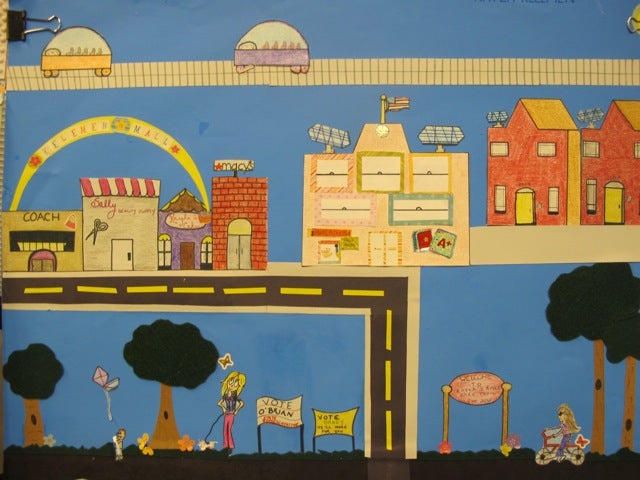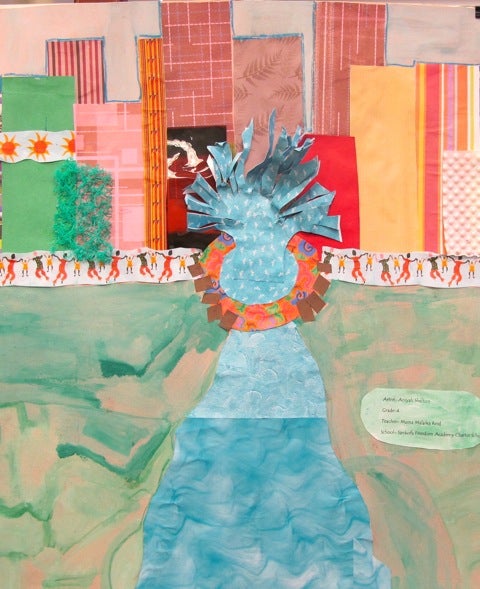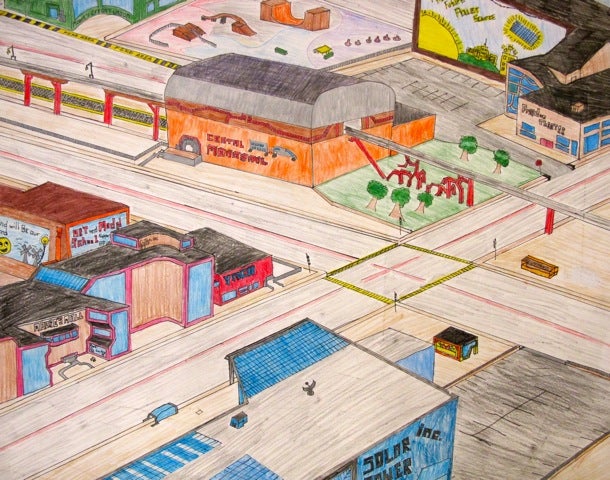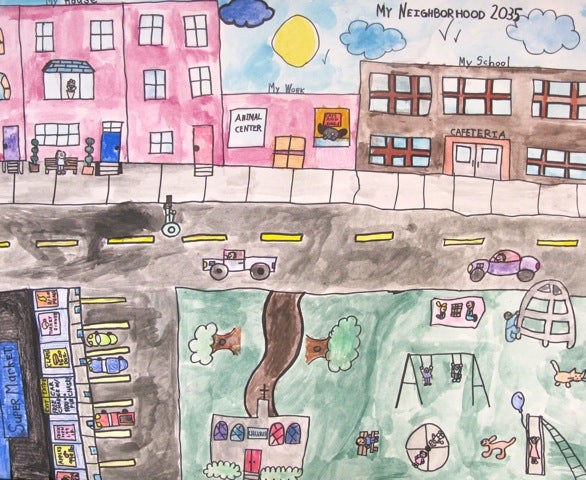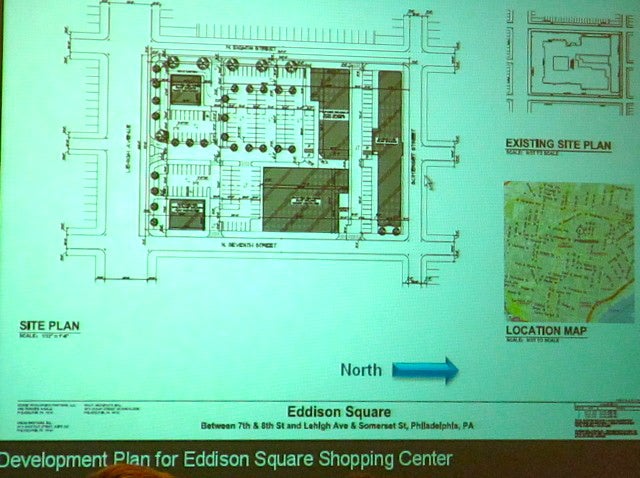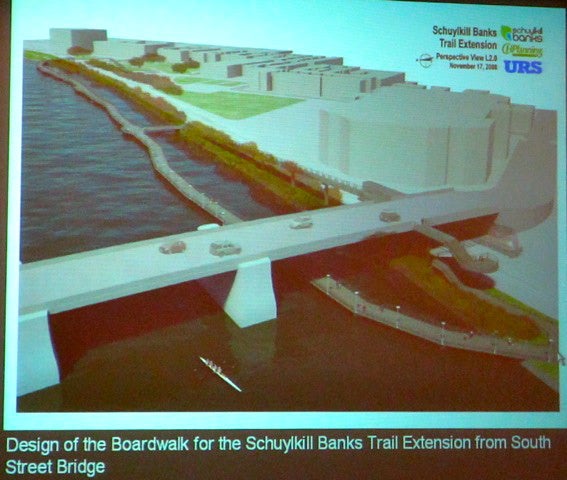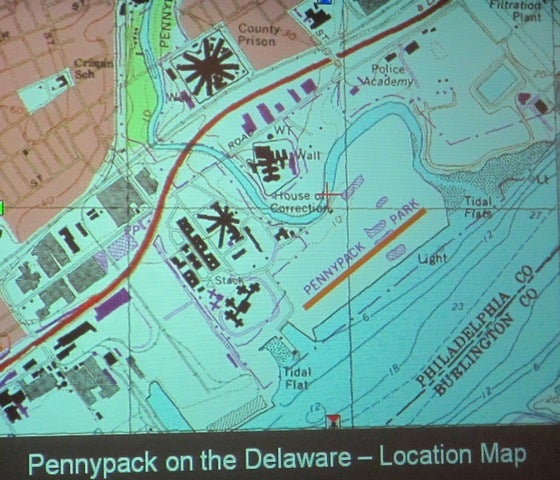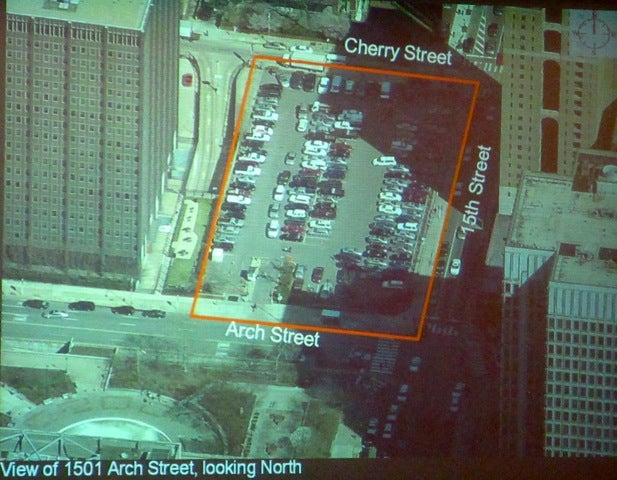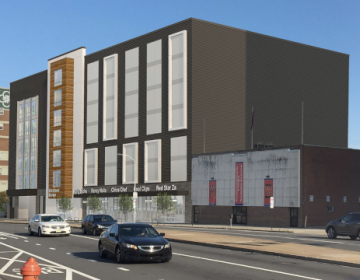PCPC gives OK to bills for reuse of classic pumping station; demo of historic high school
The Philadelphia City Planning Commission Tuesday gave its approval to one development project that would re-use a historic city building, and another that would tear one down.
The commission gave its nod to proposed legislation that would allow the sale of the red brick building at the foot of Race Street Pier – a former water department pumping station – to be sold to Philadelphia Live Arts Festival & Philly Fringe, which wants to turn the building into a waterfront arts center.
It also said yes to another proposal, Zoning Bill 100784, that would change the zoning of the former Edison High School building, located at Seventh, Eighth and Somerset Streets and Lehigh Avenue, from residential to area shopping center and C-3 commercial, paving the way for a plan that would knock down the old high school, which is on the National Historic Register but does not have local historic designation. Developer Mosaic Development Partners plans to reuse a newer portion of the high school, transforming it into senior housing. It also plans a 20,000 square foot grocery store and a take out restaurant with a drive-thru, Planner Martin Gregorski told the commission. Commissioner Nancy Rogo Trainer was the lone dissenting vote.
The pumping station legislation, Property Bill 100789, is likely to be considered by city council at its Thursday meeting. Introduced by First District Councilman Frank DiCicco, the legislation would transfer ownership of the building at 140 N. Columbus Boulevard to the Philadelphia Authority for Industrial Development, which would then sell the 10,000 square foot property to Philly Fringe. The arts organization plans to house a black box theater, two rehearsal studios, offices, and a bar and restaurant there, city planner William Erickson told the commission. “The use is very consistent with what is proposed for the area” under the Central Delaware Master Plan, Erickson said.
Commission chairman Alan Greenberger, who is also the city’s deputy mayor for commerce and planning and a board member of the quasi-city agency that is overseeing the master plan, agreed that it was a great fit. The proposal could also result in the improvement of a roadway to the right of the building, which was formerly part of Race Street, he said.
“I was excited to see it in the commissioners’ packet,” Commissioner Rogo Trainer said of the proposal.
A spokeswoman for Philadelphia Live Arts & Philly Fringe said the organization did not wish to comment on the proposal until things are further along. But according to a written description of Philadelphia Live Arts’ proposal given to planners, “the theater and studios will be active year round with artists from the region, around the U.S. and abroad creating new works of contemporary dance, theater and music.”
The riverfront performing arts center would also provide technical resources, studio time and performance opportunities to artists working on plays that will be performed during the Philly Fringe festival. “In short, we envision a large community of artists and creative people using the Center daily and informal showings and formal performances will draw our devoted – and new – audiences and visitors to the Center,” the project description says.
The building is on the local historic register, Erickson said. His understanding, he said, is that the building will be sold for about $750,000.
The bill that would change the zoning of the former Edison High School parcel was introduced by Seventh District Councilwoman Maria Quinones-Sanchez. “The school district still owns it, but there is a pending sale,” Gregorski said. The cost of reusing the building, which is in a state of disrepair and has asbestos issues, is prohibitive, he said. Because the building is on the National Historic Register, any developer would have to go through a historic review process if any federal funding is used, Gregorski said. But otherwise, since there is no local designation, the building can be torn down.
Staff recommended the commission approve the zoning change, with a provision that the developer sit down with the commission to work on improving the project design. City Council could vote on the bill as soon as Thursday.
Commissioner Nilda Iris Ruiz, who grew up in the area, said that there is a great need for senior housing there, but she, like other commissioners, were not thrilled with the drive-thru restaurant part of the equation. She also said she knew about environmental problems at the building that would make reuse expensive, and noted that the area is starting to pop with commercial activity, and this development could help that along.
Both she and Trainer suggested the developer hold meetings with the community. “It seems like it would have a huge impact on the community,” due to its size, Trainer said.
Trainer asked if any studies had been done looking at the cost of reusing the historic high school. Gregorski said school district officials told him this was the case.
One community member suggested that reuse of the building, a neighborhood landmark, might be possible with grant money. An aide for councilwoman Quinones-Sanchez said that in a series of community meetings, community members also wanted to know, at first, whether the building could be reused. The council woman does not think that would be feasible through either public or private development, he said. What everyone at the meetings agreed on is that something has to be done with the building, he said, as it has been vandalized and is used for illegal activities.
After the meeting, Planning Commission Executive Director Gary Jastrzab said that the developer would need water department, zoning and other approvals to move forward with the project. He is also hoping the commission can convince the developer to amend its plans a bit. “There is an opportunity to do something better here,” he said.
Unless the city’s new zoning code is in place before the developer is ready to move forward, persuasion is all the planning commission will be able to use. Once the plan has been adopted, a development of this size would trigger a design review process, which will give the commission more teeth, he said.
Commissioners also approved:
-Property Bill 10777, which accepts easements for at-grade crossings of the CSX railroad tracks at Race and Locust streets, and also an aerial easement for a pedestrian bridge over the tracks near 26th and Spruce streets, providing access to Schuylkill Banks Park.
-Property Bill 100779, which accepts from the Children’s Hospital of Philadelphia property between the Schuylkill River and CSX tracks, between the South Street Bridge and the CSX Railroad Bridge. A portion of this project will be used for a boardwalk.
-Property Bill No. 100776, which establishes restrictions prohibiting people from entering or making a lot of noise near a portion of Pennypack Park on the Delaware to protect bald eagles who are nesting there. The restrictions will apply from Jan. 1 through Aug. 15 of each year, the birds’ nesting season.
-A series of bills that revise the lines and grades of a portion of North 15th Street, and allow easement and other agreements necessary for the construction of the new family court building.
-Property Bill No. 100842, which allows the city to enter a lease agreement for Dilworth Plaza with the Center City District. The bill would enable the Center City District to receive $15.5 million in state grant money for a planned re-do of the plaza. CCD has also received $15 million in federal grant money. The bill is for the lease agreement only. It does not approve the specific Dillworth Plaza plan. CCD President Paul Levy said a series of public meetings is coming early next year on that plan, and it will also be coming to the planning commission.
-Property Bill No. 100785, which would allow the city to accept an easement of land owned by the Scattergood Foundation at Friends Hospital, allowing for the expansion of the Tacony Creek Trail.
Contact the reporter at kgates@planphilly.com
WHYY is your source for fact-based, in-depth journalism and information. As a nonprofit organization, we rely on financial support from readers like you. Please give today.



